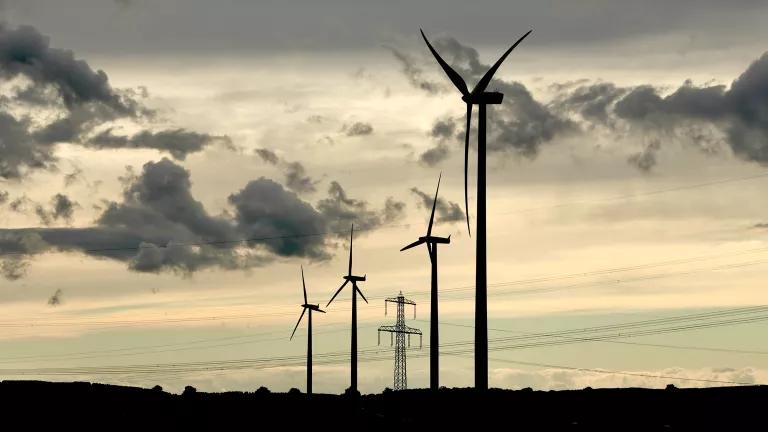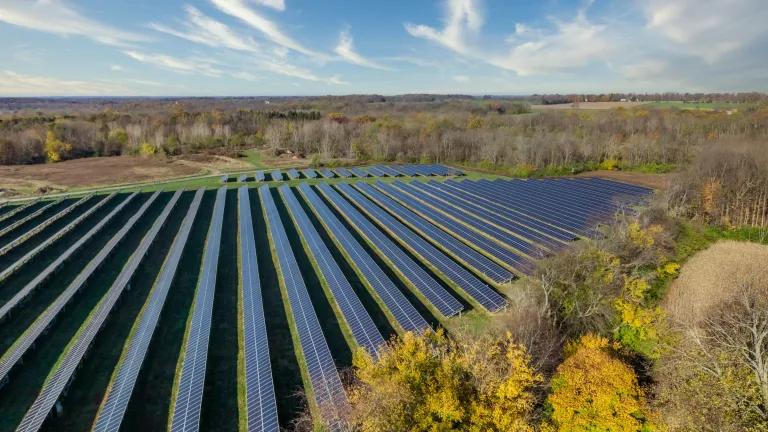NRDC applauds Senator Coons' MLP Parity Act & looks forward to continued partnership in its enhancement
Yesterday, a bipartisan group of senators led by Sen. Chris Coons (DE) re-introduced the MLP Parity Act, underscoring the critical importance of continuing to utilize the tax code to overcome the market barriers impeding the growth of clean energy and efficiency technologies that reduce pollution and create jobs across the country.
For far too long, the nation has privileged the dirty fossil fuel technologies of the past. The fossil and nuclear power industries already enjoy billions in tax expenditures that have no expiration date. As we confront the growing threats of climate change, we must use every tool at our disposal to overcome this century-old legacy. That includes putting in place policies that foster the job-creating, pollution-cutting technologies of tomorrow while ending subsidies and other give-aways to the fossil fuel industry.
Senator Coons' legislation rightly identifies a key part of this equation—providing the clean energy industry the same financing tools that have long been available to many other industries.
NRDC has long been a strong proponent of proposals like this to give clean energy technologies access to low cost capital through Master Limited Partnerships, as well as real estate investment trusts (REITs), green banks and other mechanisms. And now, we applaud this bill’s advancement of clean and renewable forms of energy and Senator Coons’ leadership.
However, NRDC believes that the Act could be enhanced by ensuring that only energy sources that are demonstrably low carbon and sustainable are given new access to the benefits of MLP status. We should be focusing taxpayer resources on technologies that solve our most pressing economic and environmental problems and not at the same time be further incentivising technologies that worsen them.
Sen. Coons’ legislation would extend to renewable energy, energy efficiency, renewable fuels, and certain other important technologies and infrastructure the preferential access to the public (“IPO”) markets through MLPs that Congress has lavished on the fossil fuel industry for decades.
Providing easier access to IPOs through MLPs would allow more after-tax dollars to flow to investors, resulting in more cash flowing to clean energy companies. MLPs would also allow these companies to sell operating projects to investors and reinvest the sales proceeds in new projects. Both of these effects would accelerate the expansion of clean energy technologies by lowering costs and driving more investment.
While the MLP Parity Act rightly ends the exclusion of renewable sources of electricity and non-food based biofuels from MLPs, as drafted it currently includes an overly broad array of technologies through statutory reference, thereby drawing in some mature and unsustainable energy sources. For instance, the broad statutory references would include unsustainable biomass, corn ethanol and explicit qualification of liquid coal production. These energy sources risk increasing carbon pollution and degrading our natural ecosystems.
Finally, it is important to emphasize the role of MLPs in the broader energy policy context. While the MLP Parity Act rightly identifies the need to provide clean energy sources access to low cost capital in order to speed deployment, MLPs are not a substitute for other clean energy programs such as the PTC, the ITC or accelerated depreciation. Without these incentives, MLPs alone would result in less, not more clean energy deployment, which would undermine the very goal this legislation. Further, sound national energy policy must also end the suite of ongoing subsidies to Big Oil and other mature fossil fuels that are driving dangerous climate change and diverting taxpayer resources to some of the most powerful, wealthy industries in the world.
Once again, we applaud Senator Coons’ leadership in reintroducing the MLP Parity Act. There is simply no reason to continue excluding renewable energy sources from MLPs. Quite the contrary, as a nation, we should be doing everything we can to expand these energy sources. Doing so will cut pollution, grow jobs and enhance our national security.
We look forward to continuing to work with Sen. Coons, the Committee, and other stakeholders to further strengthen and pass this bill.




